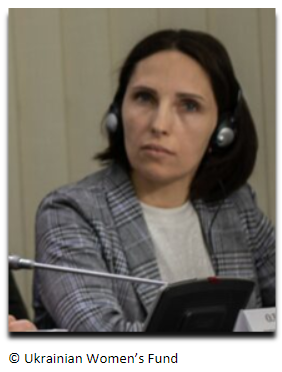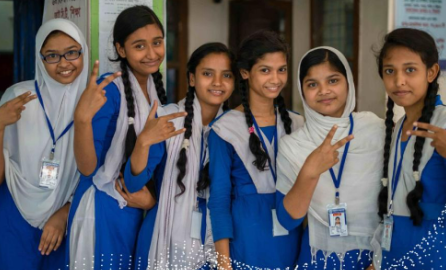Ukrainian women’s rights at stake

-
Gender marker: G2 - Promotes gender equality as a primary objective
-
Geographical area: Eastern Partnership
-
Interventions (Co-)funded by: Latvia and the Netherlands
-
GAP III’s Areas:
-
Women, peace and security:
- Strengthening Civil Society Organisations/support to third countries
- Support to third countries' national processes
-
In 2000, the United Nations Security Council adopted Resolution 1325 to recognise the unique effects of armed conflict on women and girls and their key role in resolving conflict and building peace. This Resolution urges governments to increase women’s participation and incorporate the gender dimension in all peace and security interventions, taking specific measures to protect all women and girls in conflict situations. In the context of Russia’s war of aggression against Ukraine, women and the most vulnerable groups, such as internally displaced people, are in acute need of practical, psychological, legal and informative support. Here we present two examples of the EU Member States support to women affected by the conflict:
In 2022, Latvia, in cooperation with the non-governmental organisation "MARTA", supported the Ivano-Frankivsk Rehabilitation Centre in western Ukraine. This centre provides shelter, rehabilitation services and a full range of social, psychological, legal and humanitarian assistance to women and girls survivors of sexual violence. Thanks to close cooperation with local NGOs, not only helps to create a long-term support system but also promotes knowledge sharing with other regions of Ukraine. In particular, “Centre MARTA” provides experience in the development of intervention protocols, guidelines (including one on the prevention of discrimination against women who have been sexually abused) and training for the team of specialists working at the centre to implement comprehensive rehabilitation of victims. In addition to physical and emotional rehabilitation, the centre also offers vocational training programmes, courses, lectures and other educational events aimed at teaching economic independence, financial literacy and employment. In other words, a whole set of actions with the sole purpose of enhancing women's rights and supporting them in their challenging everyday lives. Latvia is one of the largest donors to the project, contributing EUR 58,925.76 to its implementation. Additional financing has been provided by organisations from Lithuania, Slovakia, South Korea, and the USA.
Since 2022, “Centre MARTA” has been supporting their partners “Women's Information Consultative Centre” and “SEMA Ukraine” in auditing and updating the National Action Plan on implementation of Resolution 1325. Moreover, Latvian experts are conducting trainings and creating a methodology for specialists in National Social Service on working with gender-related violence, contacting victims and witnesses of sexual violence and understanding possibilities of therapy in order to avoid re-traumatisation. “Centre MARTA” also provides support in the documentation of Russian war crimes in accordance with international standards and best practices. Regional and grassroots implementation of WPS is supported via methodology for the development of local action plans. The methodology is piloted in the Zakarpatia region, through a multi-sectoral and holistic approach, including mapping all available support services and piloting a new methodology. The partners are also creating a mobile support office to better reach the regions and provide assistance swiftly.
Furthermore, in 2023, with support of EUR 336,309 from the Latvian Ministry of Foreign Affairs, “Centre MARTA” is working with partners to establish a similar rehabilitation centre in the Chernihiv region, broadening the scope to include all victims of domestic and sexual violence. Another women’s support “day” centre is being established in the city of Chernihiv.
It is important to underline that this intervention is in line not only with the commitments agreed under the Latvian 1325 National Action Plan but also that of Ukraine (second Action Plan 2021-2025). In this regard, it should be noted that the Netherlands has committed EUR 2,200,000 to help bring to life this Second Action Plan through the intervention ‘Women, Peace and Security Agenda brings results locally in Ukraine’.
With the Ukrainian Women's Fund and Women’s Information Consultative Centre as main implementing partners, this intervention aims at developing and implementing regional action plans, as well as building coalitions to implement the WPS agenda, address humanitarian and ensure the inclusion of women's voices in the recovery process. Working at the local level (i.e., trainings, grants, exchange visits, etc.) in five Ukrainian regions (Kharkiv, Khmelnytskyi, Luhansk, Lviv, Zakarpattia) the project increases women’s participation in peace processes and decision-making regarding peace and security, contributes to the prevention of conflict and violence and protects women and communities from conflict-related violence.
“Training and grant support of the Ukrainian Women’s Fund allowed women of the Luhansk region not only to participate in the formulation of priorities of local action plans 1325, but also to implement them: from regular consultations with local governments to joint security actions with police, humanitarian aid in response to the disaster, the opening of women’s businesses, recreation and sports areas, decent sanitation in health care facilities. 1325 is about peace in renewed communities, where the interests of everyone are taken into account”, the coordinator of the Coalition “Luhansk Region: Women. Peace. Security” Oksana Luniova.
The project started before the escalation of the conflict and has evolved to adapt to current needs, paying particular attention to the specific needs of women survivors of gender-based violence, women employed in law enforcement systems, families of war veterans and internally displaced people.
The intervention also works on policy change and advocacy, including monitoring the extent to which regional/local action plans are effectively implemented and addressing participation, protection and prevention issues relevant to the specific context. In addition to providing grants to women’s CSOs to support the implementation of the action plans, it supports communication campaigns that help raise public awareness of existing gender stereotypes and change attitudes about the importance of involving women in local policymaking. Lessons learned from the project are widely disseminated and used to assess and influence situations in other regions.
